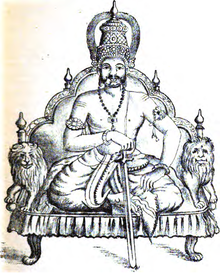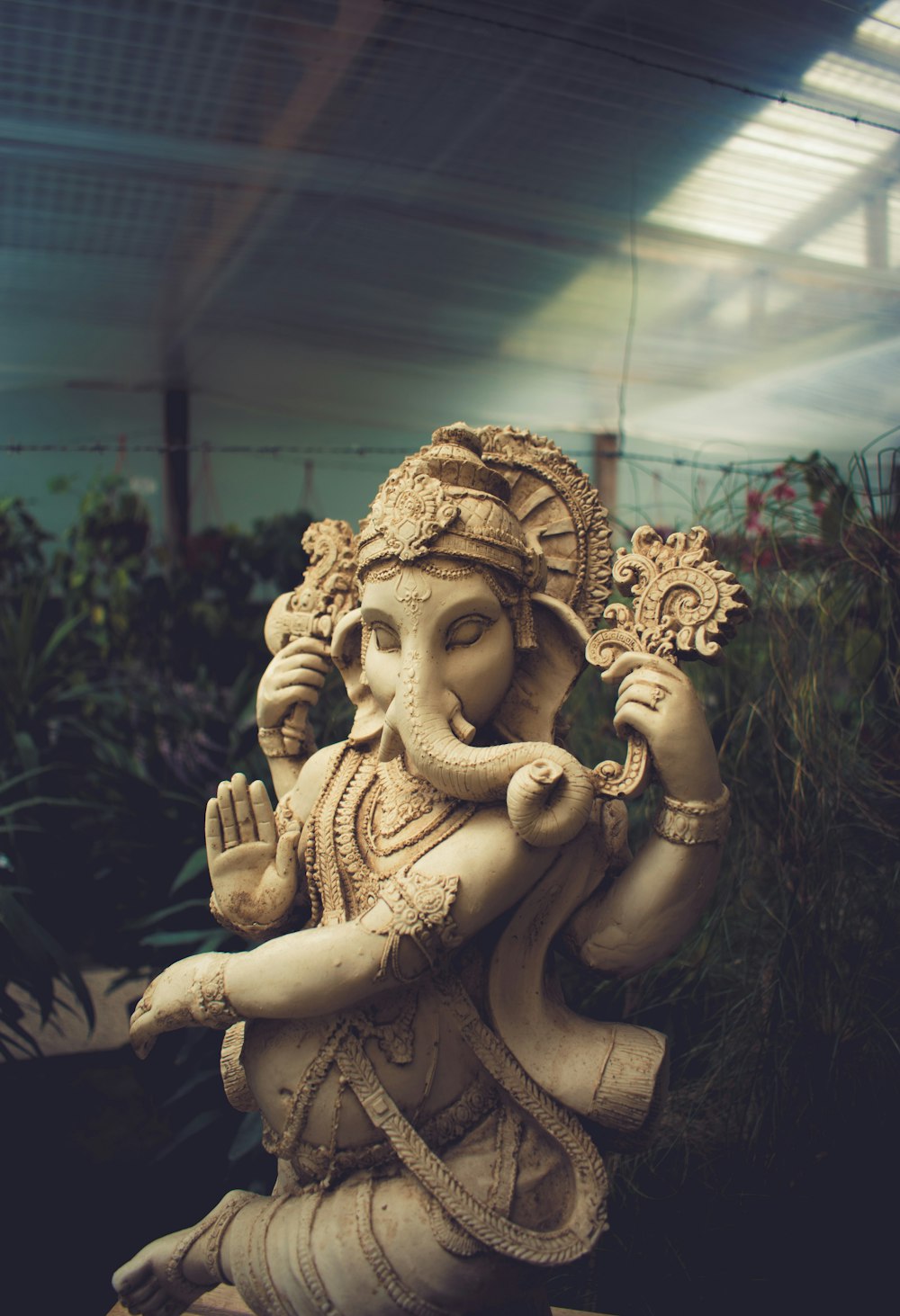Oedipus vs Yayati. A 'Sacred Games' perspective
 As the last episode
of the first season of Sacred Games ended, 'Guruji' (played by Pankaj Tripathi)
left us with a strangely mythological, intellectual embryo of the 'Yayati
Complex'. Interestingly, the title of the episode was also Yayati.
As the last episode
of the first season of Sacred Games ended, 'Guruji' (played by Pankaj Tripathi)
left us with a strangely mythological, intellectual embryo of the 'Yayati
Complex'. Interestingly, the title of the episode was also Yayati.
Yayati was a puranic
king and an ancestor of the Pandavas. He was cursed of premature and perennial
old age by his wife, Devayani's father, Shukracharya. The condition for Yayati
to regain his youth was if one of his own sons decides to swap his life with
his father, to which only Puru (Sharmishta's son) agreed.

While there is still
debate on what the 'Yayati Complex' actually means, it can primarily be
interpreted in two ways.
The popular
interpretation of the 'yayati complex' is that there is an inherent desire in
Indian children to forego their own happiness and desires for the greater
happiness of the entire household, which is usually determined by the happiness
of the elder generations (more generically, the parents), which eventually leads
to their own happiness (Puru was rewarded for his decision when Yayati decided
to make him the ruler of the empire). Now, one could go on and on about the
individual morality and subjective utilitarianism that conflicts this position,
it wouldn't be of much use when the current political atmosphere is shaped by
Right-Wing Hindutva forces harking on to the glory that Ancient India
was.
Another
interpretation of the same complex is however a darker one when seen with the
current Hindu perspective. No doubt this is the "unpopular"
interpretation. In this interpretation, although the events and outcomes are
the same, the parents are made to be the bad people. The second interpretation
posits that the parents have no regard for the happiness of their children.
They make their demands and wishes based solely on their whimsical choices for
what they deem best for themselves and see the suffering of their children as a
collateral damage.
In the context of
'Sacred Games' the makers decided to go with the unpopular interpretation as
Guruji states "पिता पुत्रा से जलता है और उसके जैसा बनना चाहता है"- "The father is envious of the
son and wants to be like him". And being the proud symbol (apparently)
of Ancient India that he is, denounces the ‘Western’ Greco-Roman concept of the
Oedipus complex.
While the
Greco-Roman culture has always been about rebellion, the Indian culture has
always been about submitting and giving in which perfectly is analyzed the
Oedipus vs. Yayati Complex.
Now let us delve
deeper into the context (oh and it’s a long way to delve into), i.e. Sacred
Games.
Right from the
beginning, when Ganesh Gaitonde starts his narrative we get to see a perverted
version of the Oedipus complex when we see Ganesh murdering his mother and
falsely implicating his father. According to the complex, Ganesh would have had
a sexual desire for his mother which was repressed because of the presence of
the ‘Indianized’ Yayati within him. When he can’t bear to see his mother
sleeping with another man, we see how this repressed sexual desire
metamorphoses into a violent abusive desire to ultimately terminate the source
of his angst, i.e. his mother. A similar parallel of a suppressed Oedipus
complex can be drawn from what happens in Hamlet. And moreover, Ganesh Gaitonde
doesn’t stop at that. He hates his father equally and wants never to be like
him, a condition, differing from both Puru (yayati) as well as Oedipus. After
killing his mother and implicating his father, he runs away freely, thus
completing his first ‘Oedipus’ task.
Further moving into
the literary realm of his name, Ganesh is the exact antithesis of what his name
stands for.  While ganesha, Shiva’s son himself suffered through a Yayati
complex, always respecting his parents and treating them as his ‘universe’, our
own Ganesh Gaitonde has refuted the Puru within him to become his own Oedipus.
Ganesh Gaitonde, no matter how indigenously Indian he might look running and
shooting and fucking in Bombay slums, he is nothing, absolutely nothing like
heroes of traditional pan-theistic Hindu dramas. He is a Greco-Roman Hero
placed amidst the Bombay of 1970-1990. And the reasons that I say this are
plenty.
While ganesha, Shiva’s son himself suffered through a Yayati
complex, always respecting his parents and treating them as his ‘universe’, our
own Ganesh Gaitonde has refuted the Puru within him to become his own Oedipus.
Ganesh Gaitonde, no matter how indigenously Indian he might look running and
shooting and fucking in Bombay slums, he is nothing, absolutely nothing like
heroes of traditional pan-theistic Hindu dramas. He is a Greco-Roman Hero
placed amidst the Bombay of 1970-1990. And the reasons that I say this are
plenty.
 While ganesha, Shiva’s son himself suffered through a Yayati
complex, always respecting his parents and treating them as his ‘universe’, our
own Ganesh Gaitonde has refuted the Puru within him to become his own Oedipus.
Ganesh Gaitonde, no matter how indigenously Indian he might look running and
shooting and fucking in Bombay slums, he is nothing, absolutely nothing like
heroes of traditional pan-theistic Hindu dramas. He is a Greco-Roman Hero
placed amidst the Bombay of 1970-1990. And the reasons that I say this are
plenty.
While ganesha, Shiva’s son himself suffered through a Yayati
complex, always respecting his parents and treating them as his ‘universe’, our
own Ganesh Gaitonde has refuted the Puru within him to become his own Oedipus.
Ganesh Gaitonde, no matter how indigenously Indian he might look running and
shooting and fucking in Bombay slums, he is nothing, absolutely nothing like
heroes of traditional pan-theistic Hindu dramas. He is a Greco-Roman Hero
placed amidst the Bombay of 1970-1990. And the reasons that I say this are
plenty.
Ø
He
detested his parents and killed them.
Ø
He
overcame the Puru within him to become his own Oedipus.
Ø
He
rebelled. Ran away. Subdued authority. Rejected tradition. Fought with ‘gods’
Ø
More
importantly, vanquished those gods(Salim Kaka, Suleiman Isa, the owner of the
Hindu restaurant)
Ø
The most
important parallel however is how he often keeps repeating ‘Aham Brahmaasmi” (I
am Brahma) – I am God. The one. The Supreme. ‘आज से
गोपाल मठ में सब मेरी पूजा करेंगे’.
This is a typically classic
Greek Hero line, which all Greek tragedies have succumbed to.
Ø
The
scene in which his ‘Teesra baap’ rescues him from jail is the usage of another
favourite Greek tragedy device, Deus Ex Machina. God out of the machine.
The
bigger question that it further poses is- “Does Gaitonde manage to retain his
Oedipus, or the (chronologically) final shot where he shoots himself in the
head is the ultimate death of our Oedipus and birth of our Puru, in the form of
the sacrifice for his ‘Teesra Baap’?”


Comments
Post a Comment